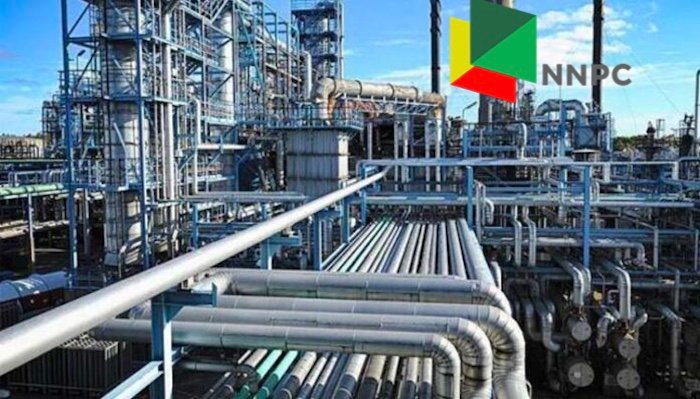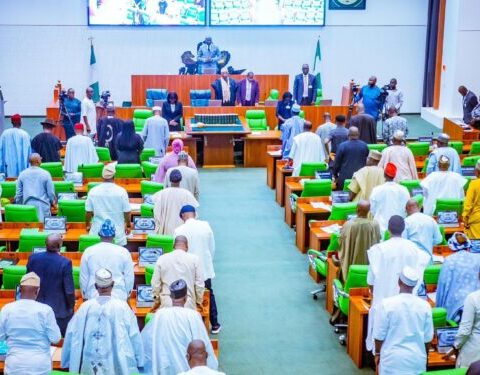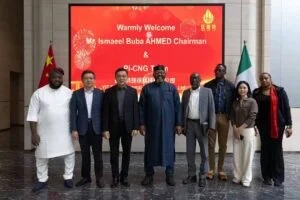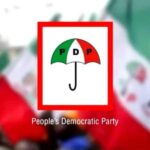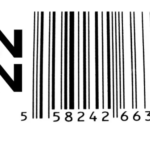-
For example, if it costs $10 to produce a barrel of crude, the government can sell to local refineries at $15. It goes without saying that this will drastically reduce the pump price of PMS in Nigeria. It’s all about the government’s willingness to take such a step.
The good news, as well all already know, is that the Port Harcourt Refinery has resumed production. Indeed, reports said yesterday (Wednesday, November 27) that the refinery, operated by the Nigerian National Petroleum Company Ltd. (NNPCL), began the first truck-out of petroleum products the same day (Tuesday, November 26) that it was announced that production had resumed at the plant. That is to say that as at the time of breaking the news on Tuesday, marketers had already deployed their tankers to lift products from the refinery’s depot for distribution to their outlets across the country. That, certainly, is a good development.
Expectedly, the Administration and its supporters are beside themselves with joy, even euphoria, over what is actually a positive development, holding up the delivery of the PH Refinery project as evidence of a Daniel finally come to judgment: it is instructive that shortly after NNPCL announced it had officially begun production from the first phase of the refinery, President Bola Tinubu quickly directed the firm to ensure prompt reactivation of the second phase of the refinery, as well as the ones in Warri and Kaduna.
The Port Harcourt Refinery consists of two plants. Both located in Eleme in Rivers State, they have two operational units established in 1965 and 1989, with a combined installed capacity of 210,000 bpd. The older, a 60, 000 bpd facility, is the one that has just been rehabilitated in the phase one of the turn-around-maintenance project. The relatively newer plant with 150,000 bpd capacity, is yet to be worked on.
The rehabilitated refinery is currently operating at 70 per cent of its installed 60,000 barrels per day (bpd) capacity, according to a statement by NNPCL’s spokesman Olufemi Soneye, with plans to ramp it up to 90 per cent.
The rehabilitation of the total 210,000 bpd refinery effectively began in 2021 after the federal government secured a $1.5 billion contract to fix the facility, which had been neglected for years. To be done in three phases of 18, 24 and 44 months, as the government announced in April 2021, the project was to be funded from NNPC’s Internally Generated Revenue (IGR), budgetary provisions and African Export-Import Bank (Afreximbank). The timelines were consistently missed. But, now, the “eagle is here”, as talented musician Flavour would sing.
Besides President Tinubu, some other stakeholders seem to have been profoundly excited by the revamping of the PH refinery.
In his reaction, Dr Billy Gillis-Harry, National President of Petroleum Products Retail Outlet Owners Association of Nigeria (PETROAN), said: “We are excited that the production and loading of refined petroleum products have commenced at the refinery, and we are expecting that soon, the price of PMS will be stated by NNPC to the benefit of Nigerians.”
That may well be so. But, that also, in my view, is exactly where the problem lies, the flip side, if you will, of the story: namely, the fact that the actual, perhaps more positive, pricing regime expected to be ushered in following the revitalization of the PHR, is as yet indeterminate, deliberately made so by an administration that doesn’t seem too keen to give citizens reasons to be happy about anything.
Even with Dangote’s 650,000 bpd, the NNPCKL’s 60,000 bpd, Edo Refinery and Petrochemical Company’s 21,000 bpd and Imo’s Waltersmith’s 5000bpd (to be ramped up to 25,000 bpd in the second phase), Nigeria already boasts a sufficient local production capacity. And if the presidency’s optimistic pronouncements on the future of local crude refining are anything to go, it means that sooner than later, Nigeria will have a surfeit of locally refined petroleum products to serve both local and export markets.
In a statement issued by his Special Adviser on Information and Strategy, Bayo Onanuga, Tinubu, while reacting to the successful reactivation of the main Port Harcourt refinery, had stressed that the development would significantly enhance domestic production capacity, boosting in-country refining, alongside the contributions of privately-owned refineries, thereby making the country a major energy hub.
Reminding that the gas sector is also enjoying “unprecedented” attention by his administration, Tinubu assured of his government’s determination to repair the country’s refineries with a view to eradicating the “disheartening” perception of Nigeria as a major crude oil producer that can’t refine for domestic consumption.
And while he has not specifically mentioned it, the current developments in the nation’s corruption-riddle oil and gas sector are quite positive and speak to an inexorable move towards a total elimination of imported petroleum products as an inevitable part of Nigeria’s energy consumption mix.
However, as earlier observed, all these are unlikely to impact positively on price in the foreseeable future. And this is why. Now, once we get to the point where we longer need imports to supplement local production, the issue of subsidy (which is or was nothing more than a money laundering scheme by the political elite, by which oil sector agencies and government officials simply paid out huge sums of money to cronies, to purportedly subsidize fuel importation that never, in most cases, happened) will not arise again.
And for emphasis: the removal of the obviously, indefensibly corrupt subsidy regime was replaced, in a smart political move by the never-ever-altruistic political leadership, with a punishing product price regime that is helping the ruiners to exert their pounds of flesh from hapless consumers who had become too critical of the FG’s subsidy administration. Much of the proceeds from the crippling per litre price of PMS is still shrouded in secrecry!
That may explain why even though they are selling the crude to the refineries in naira, the price is still the naira equivalent of the dollar price of a barrel of crude in the international market. Which means that, while the forces of demand and supply (if they leave the market truly and transparently deregulated) may result in marginal price reductions over time, there isn’t likely going to be a new price regime that will deliver prices at well below between N800 and N900 per litre (and that is being very optimistic) in the foreseeable future. As for Nigeria’s energy (gasoline) consumers that have been practically condemned to very low disposable incomes – no thanks to galloping inflation, high unemployment rate and poor wages, N900 per litre of PMS will remain clearly unaffordable for a long time to come. I wager that any price above N300-350 per litre is a huge disservice to the Nigerian population, no matter the soundness of the economic policy driving the price regime.
And it is possible to do N300 max N350 PMS price regime in Nigeria. There is no economic sense in the government maximizing profit at the expense of the population. Must the government sell to the local refineries at the market price of crude, for instance? The answer is no. Now that imports will no longer be part of the drivers of our energy requirements, why not transfer the subsidy saved as a result of the phase-out of imports to the cost at which crude is sold to the refineries? In other words, rather than sell to local refineries at international market price, the government should prioritize selling to them at a little above factor cost, which will in turn make the refineries produce at lower cost, ultimately resulting in their selling to local consumers at cheaper, more affordable prices.
For example, if it costs $10 to produce a barrel of crude, the government can sell to local refineries at $15. It goes without saying that this will drastically reduce the pump price of PMS in Nigeria. It’s all about the government’s willingness to take such a step.
Every government is or must be run for the good of the people. Governments are expected to emplace and execute policies that are primarily designed to make life a lot easier for the people. For, of what use is a government that has so much money at its disposal but appears loathe to lift its people out of poverty? The current debate about the Tinubu Administration seeking a fresh $2.2bn loan while the nation’s revenue agencies have reportedly exceeded their revenue targets, speaks to an administration’s economic reforms that seem aimed at simply making life more miserable for the people.
It is needless to say that the opacity that has defined Nigeria’s oil sector management over the years is the cunning, rapacious political elite’s wicked and self-serving scheme for cornering our commonwealth to themselves while ensuring that we know next to nothing about an industry that all our very lives depend on.
One insists that there was never such a thing as subsidy. Until the Jonathan era when the redoubtable Ngozi Okonjo-Iweala as the Coordinating Minister of the Economy, exposed the shenanigans of some untouchable ‘oil magnates’ who would receive subsidy payment to import fuel but would bring empty vessels into Nigeria’s maritime space only to turn back and record that they had emptied their vessels of PMS, we didn’t know that subsidy was all an elaborate scam woven and used by the patriotic elite to cheat the people of Nigeria out of their common wealth.
Opacity simply enhances their scam! Or where is the sincere and patriotic Nigerian leadership that has ever told us the actual cost of production of a barrel of crude oil, the market price and the accruing profit? How many barrels of crude do we actually produce in a day and from where and where? Who are behind the oil thefts that have become intractable? Exactly how many barrels of crude oil are adequate for local refining and consumption? Just why did we leave all four state oil refineries moribund for decades and resort to importation of petroleum products that came to inject imponderable corruption into our oil sector management? These are questions that nobody will ever answer and certainly not President Tinubu and Co.
And so, the Tinubu Administration may beat its chest in self-congratulation over the ‘feat’ of PHR resuscitation all it wants. But the reality is that its deliberately fussy oil sector policy isn’t about to become the shot in the arm the nation needs to transit the sector into the true engine of growth, transparent profit and inclusive prosperity that it is supposed to be for all Nigerians.
One stands to be corrected.
-
Follow us on all social media platforms @dailyquery, for more news, information and analyses.
